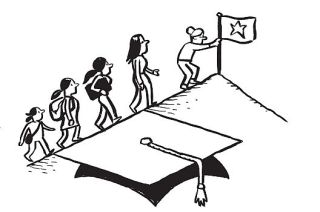Investment in Education – priorities for Budget 2021

Investment in Education – priorities for Budget 2021
Education is widely recognised as crucial to the achievement of our national objectives of economic competitiveness, social inclusion, and active citizenship. It benefits not just the individual, but society as a whole and the returns to the economy and society are a multiple of the levels of investment. However, the levels of public funding for education in Ireland are out of step with these aspirations. The response to Covid-19 will exacerbate existing inequalities within our education system and Government must work to mitigate against this, and to ensure that those who are impacted the most will receive the necessary support. First and foremost this requires prioritising investment in areas where it is most needed.
Early Childhood Care and Education (ECCE)
The most striking feature of investment in education in Ireland relative to other OECD countries is its under-investment in early childhood education. Ireland spends just under 0.2 per cent of GDP (0.25 per cent of GNI*) on pre-primary education compared to an OECD average of 0.8 per cent of GDP. Early childhood is the stage where education can most effectively influence the development of children and help reverse disadvantage. Government should increase investment in ECCE to meet the OECD average by 2023.
Reducing class sizes and pupil teacher ratios
Ireland’s class sizes have long been above the European average, particularly at primary level where the average class size is 25 (the EU average is 20). As smaller class sizes make the biggest difference to the youngest classes, Government policy must ensure that the Pupil/Teacher Ratio (PTR) in the youngest classes in primary school is at a level which allows teachers to provide early interventions without disruption. This is vital to ensure the best educational outcomes for all children and a smooth transition from early years settings to the formal education system.
DEIS Schools at Primary and Post-Primary level
Ireland already has an educational divide with outcomes for students in DEIS schools significantly below those of their peers, notwithstanding the progress made in recent years. Add to this the intergenerational transmission of low skills in Ireland, and it is evident that the move to online learning as a result of Covid-19 will negatively impact outcomes for students in disadvantaged schools.
Continued support for DEIS schools must be a policy priority with a suite of policy measures to address educational disadvantage including a class size below 20, reduced Pupil Teacher Ratio, and sufficient ongoing resourcing available to support new ambitious literacy and numeracy targets.
Further and Higher Education and Training
Ireland requires a sustainable funding strategy for higher education and investment in further and higher education will have to increase significantly over the next decade simply to cope with demand. Government should develop a framework to deliver sustainable funding revenues for higher education over the next five years with a roadmap to 2028. This framework should have clear medium and long-term targets. A broadening of access routes to higher education must form part of any new funding strategy. If higher education is to integrate into lifelong learning and play the leading role it can play in climate transition, a broadening of access routes is imperative, particularly as the nature of work and employment changes.
Skills
An education and training strategy focussed on preparing people for the impact of digitalisation, and the transitions within the workforce that this transformation will mean, should be developed. This strategy must be flexible enough to adapt to regional needs, and should be fully funded and linked to the National Skills Strategy, the Human Capital Initiative, and Ireland 2040. People with low skill levels in particular must be a focus of this strategy.
Lifelong Learning and Adult Literacy
Ireland has a persistent problem with adult literacy and adult skills in general. A very significant proportion of Ireland’s adult population possesses only very basic literacy, numeracy and information-processing skills, insufficient to compete in a market where the skillsets of even highly-skilled workers are likely to be obsolete in a matter of years.
We must develop an education and training system that can support adults throughout their lives as they acquire skills and navigate the transitions that will occur as a result of the digital transformation of the economy.